






















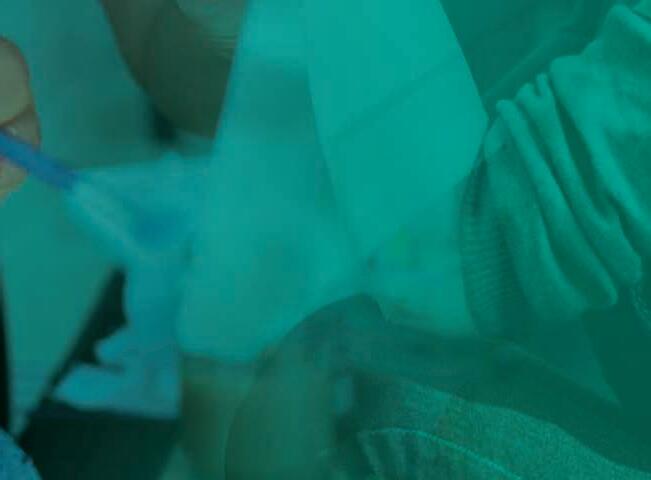



























Did you ever imagine a time where leaving your home would be prohibited?
Crossing borders or regions would become a distant memory? And you couldn’t share a hug with those you care for and love?
Imagine whole communities, states and countries embracing extraordinary personal restrictions, banding together to protect the most vulnerable community members in unprecedented collective health measures.
Rapid-fire social change, overnight lockdowns, home schooling, job insecurity, overwhelmed health systems, supply chain failure, grocery shortages… and of course the devastating health impacts and loss of life caused by COVID-19 itself.
Community food pantries exploding, unmet neighbours becoming carers, a surge in telehealth services, mental health being a daily priority for leaders and the media.
Exhaustion, fear and anxiety coexisting with inspiration, innovation, empathy and a profound revaluing of community and connection.
If you lived through the 2020-2022 COVID-19 pandemic, you won’t have to imagine. This global event asked each of
us to adjust our lives in ways previously unimagined, make impossible choices and sacrifices, and to forge new reserves of resilience daily.
The 2020-2021 pandemic brought sustained upheaval and uncertainty on global and individual levels. But when the rest of the world ground to a near-halt as COVID-19 spread, carers kept the world turning for the people they love and support. Never has the role of caregiving been more isolating or demanding for carers. This pandemic asked carers to be more courageous, resourceful and self-reliant than ever before.
COVID-19 has had universal social, emotional and physical impacts in ways that society is still yet to recover from, or fully comprehend. The cost to carers in particular is still ongoing and unquantified.
In 2022, Carers ACT pauses to pay tribute to the unpaid family and friends who continued to care for others during one of the most challenging times in recent history, reflecting on their enormous contributions, celebrating their successes and achievements, and acknowledging their sacrifices and hardships.
Caring Through the pandemic is a unique chapter in time that will leave a deep and lasting impression on carers, the people they care for, and communities for many years to come.



It has been our great privilege at Carers ACT and an immense source of inspiration to support unpaid carers through the rollercoaster that has been the 2020-2022 COVID-19 pandemic.
It’s hard to find the words to describe the caring through the pandemic journeys we have witnessed. We have seen the ongoing struggles and challenges, the fatigue and the frustration faced by unpaid carers. We have also seen enormous acts of commitment, flexibility, resourcefulness, and tenacity by carers during this time.
We wanted to share your reality of caring through the pandemic – both the heartbreaking and unacknowledged negative impacts you have carried, and the heart-warming and awe-inspiring outcomes you have achieved through your strength and compassion.
It struck me during the stream of lockdowns, how the largely invisible and unacknowledged role of being a carer retreated even further into the shadows during the pandemic. While the uncertainly of COVID-19 did bring out the best in human collaboration and a new focus on community, it also caused us all to become inward looking and self-sufficient. We looked to our household and their immediate needs in the toughest times, and there was little bandwidth for the community to see beyond their own hardship. As a result, caring families experienced increased isolation and invisibility, without the relief often provided by extended
families and friends, without the services that assist, without the ability to go outside or change their environment.
So, while we do celebrate the fortitude and achievements ofunpaid carers, we must also acknowledge the tremendous sacrifices and anguish experienced by carers over the last two years. Whatever challenges follow the pandemic on a global, community or personal level, Carers ACT reaffirms our commitment to carers; to celebrate with you, to acknowledge the difficulty you face and the sacrifices you make, and to raise awareness for your contribution to individual lives and community as you continue caring through the pandemic and beyond.
Much like the mixed sentiment we all felt throughout the pandemic itself, I write this introduction with polarised emotions and a sense of overwhelm. It is with great heartbreak, pride, optimism, respect and the greatest of gratitude for each and every carer in the ACT that I present Caring Through the pandemic.
To all carers, Thank you.
Lisa Kelly CEO, Carers ACT
“












Caring in the pandemic was like a constant two-year loop on Esher’s staircase. Dead-ends, retracing my steps, and false starts were constant. Simple caring tasks became complicated or impossible, always requiring innovative solutions, or navigating new restrictions. I was more alone, more unsure, and more overworked than ever, but I also felt I was failing as a carer… unable to provide the expected level of care, unable to see my loved one in hospital and hospice, and unable to provide the vital face-to-face comfort and reassurance that was the cornerstone of my caring-giving.” - Anon.Carer

What was it like being a carer during the pandemic?








“
Every cloud has a silver lining ”.
I know what it means but it never happened to me until my husband was diagnosed with Alzheimer’s disease (dementia) in 2018. Istarted frantically contacting Dementia Australia to find out as much as I can about it and to learn how to deal with it and support my husband. Carers ACT has given me skills and knowledge that never would have happened.
Carers ACT gave me not only informationto other resources but also things to do to help me, as a carer, to get refuge. Carers ACT was very quick in adapting to the Zoom online training sessions when the face-to-face meetings were halted. During the Covid situation, I continued to be able to attend relevant workshops that helped me realise my role as a carer. For example, Montessori Dementia Training, Self-Care for Carer, Journaling for Self-Care, Infection Control Awareness Online Training, Navigating the Aged Care System, and many more. Carers ACT sponsored me last year to study “Certificate III in Aged Care” whichprovided me with knowledge and skills to care for my husband every day.
I also attendedthe crafty workshops such as Kogin Japanese Embroidery, Make a Polymer Clay Miniature Succulent Garden, and many others. The outstanding one that provided me with a mental and physical haven is Mandala’s Dot Painting with Estella. I relaxed after every session and acquired the skills and know-how to start on this. I have made gifts for self, friends and extended families. The one I liked most which also happens to give my husband pleasure, is this piece which is made up of several different sized vinyl records and DVDs. I know it gives him pleasure because almost every night when we go to bed, he sees it and gives positiveremarks.




“Every cloud has a silver lining”
Hi there, these are my photos for 2020. Here are Gordon, Belle and Gordon’s dad watching cricket on TV post 9 weeks of chemo for Gordon, and this is My Tiny House, a 15m2 Art Studio that friends built for me in our yard.



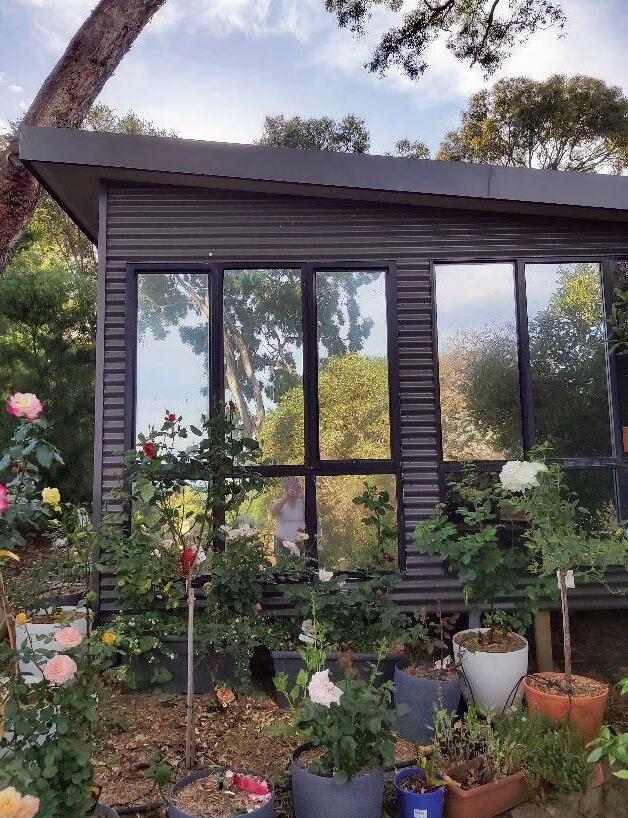 Contributed by Ute Mceachran
Contributed by Ute Mceachran
2 months in hospital and took 3 months off work.
The lock down occurred when I was in hospital and so it was with a rude shock that I discovered the world had somehow changed whilst I was in hospital. Something as relatively simple as buying groceries at Woolworths was suddenly a challenge.
I was frightened and worried about everything. I was still in a fragile state in terms of my mental health. Once I went back to work in the emergency department of the Canberra Hospital,


I was frightened I would catch covid at work and make my children sick. Not working was not an option. The schools had closed and suddenly, when I was not at work, I was home schooling the children. Both of my children reacted in different ways. One of them thrived and blossomed, the other wilted. I was advised not tosend them to the schools that had remained open for children of essential workers because they would not have coped being in a new environment.

did
2020 did not start well. My mental health was impacted by the bushfires and the constant worrying about whether we would need to evacuate and whether I would be able to get both of my children, who both have disabilities, to safety. I ended up spending
“The day they announced that the schools would re-open, I cried. I bought the teachers flowers...”
I discovered anew that I did not like change. I have somehow become more rigid the older I am. I struggled with the home schooling and one day, in anger, my 6-year-old daughter told me to stop being her teacher. I am not a teacher, I am a healthcare worker. She was right. I had been thrust into a role I was not good at and resented. The day they announced that the schools would re-open, I cried. I bought the teachers flowers because I was more aware than ever how hard their jobs are and what a magnificent job they do looking after my children.
The lockdown and the Covid-19 pandemic have made me reflect on what is important and what things I can live without. I can live without travel. But I also can’t. My sister and her family and my parents live in different countries overseas.

My biggest fear now is that my father, who is about to turn 80, will sicken and pass away and I would not have thechance to say goodbye.
Somehow though, we have come together as a community. People are kinder to each other, we smile more, we compliment others more. Yes, there are those who are ruining it for everyone else, but on the whole, we have changed as a community. The work in the emergency department is hard, there are more presentations than ever before. But the nurses, doctors, the support staff, still give 110% of themselves. All day, every day. I feel honoured and privileged to work with them.
I have learnt that we are all stronger than we think we are. That when we need to, we come together, we support each other. We do things we never thought we could. I am waiting for life to go back to “normal”. In the meantime, I keep on carrying on with the new normal.
 Contributed by Rhonda Dotson
Contributed by Rhonda Dotson
“Something as relatively simple as buying groceries at Woolworths was suddenly a challenge.”
We are two carers, one in Braidwood and the other in Gungahlin, who used poetry as a way to maintain connection in the new and uncertain reality of 2020 and beyond. The early months of lockdown were a time of questioning identity while dealing with the challenges of being a carer in isolation. The news from around the world and here was bad, then worse. Statistics were stark. The future seemed stormy.
As we adjusted and found our footing, we exchanged poetry and photos by email to tell the other of our daily lives. Our short poems (loosely following the Japanese haiku form) are about our gardens, our fears, moments, laughs, encouragement, loved ones and more. We have continued our exchange as life slowly moved to a new normal. Here are a few of our poems and photos, ending with oneabout the first jab in June 2021.
Contribution from Julia Irwin And Neva Kastelic

“As we adjusted and found our footing, we exchanged poetry and photos by email to tell the other of our daily lives.”

days of extra quilts and eating for Australia –I know how bears feel!

Neva


new day drops to hand like a wrapped sweet hard or soft centred time will tell

Julia
flowers for a friend a night of rain as soft as petals underfoot

Neva
peanut butter bix now I scrape the bowl finding leftover life still good
Julia

holding on to warmth leaves like ragged butterflies –fluttering heartbeats
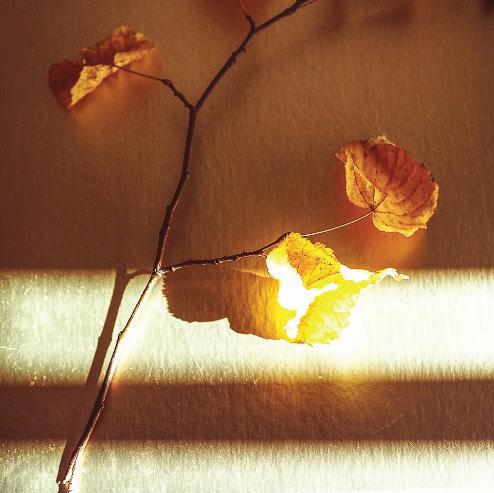








Neva
unexpected star flames crimson in my garden autumn’s harbinger
Julia

mornings – this greets me bubbly pink loveliness wouldn’t you smile too?
Neva
sore arm lethargy excuse to go back to bed at least I’ll get up 1 June 2021, my first jab
Julia









I believe these photos show how that day, my heart was broken and the reality between life and death was a reality that my family was going to have to live with, within day. With the inability of proper goodbyes.
 Contributed by Marianela Aguilera
Contributed by Marianela Aguilera


First we began with the smoke, next came the hail, then came the pandemic. Well what a beginning to 2020, How will this affect us, So many questions, So much uncertainly. Well then came lock down, A prison within my home and mind. What do I do, what can I do, All my support services, STOPPED. How will I keep us going, how do we make it through?
Many mixed emotions, Much stress, New strategies to be found, And in amongst the myriad of confusion, I found things that I loved, Stopping, Reassessing, Resilience, Strength, Simplicity.
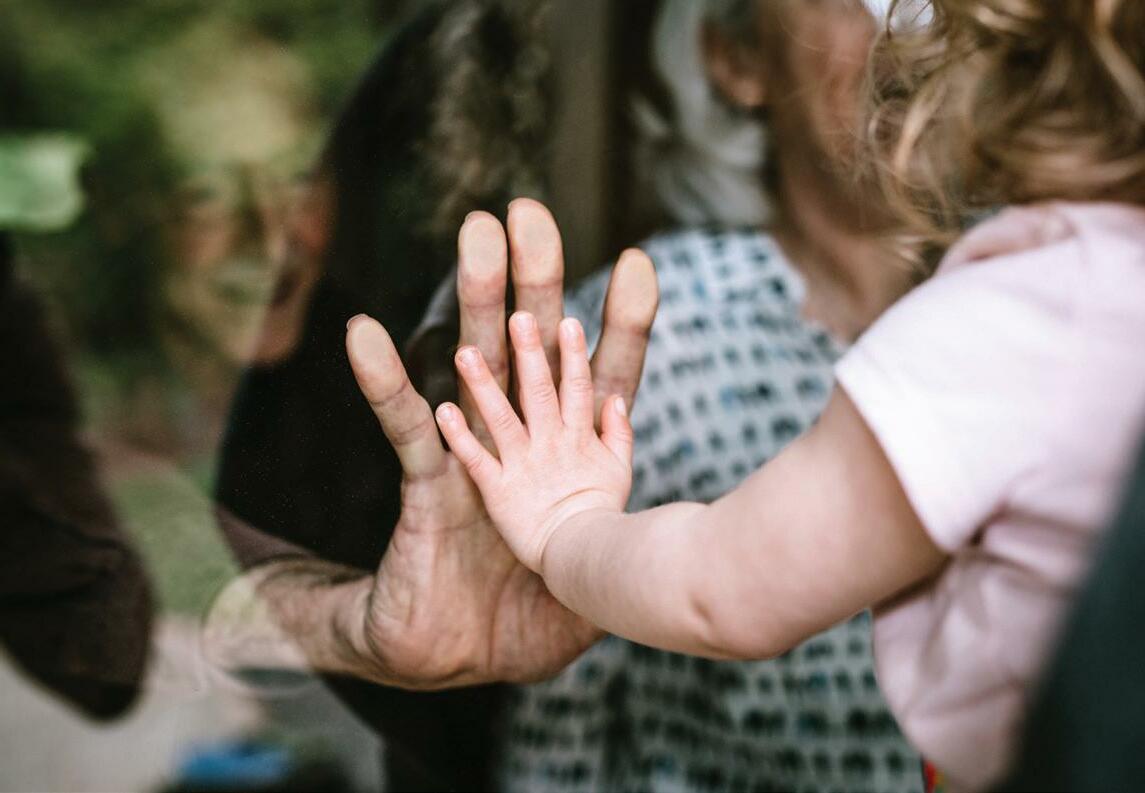
Then we began slowly emerging from our locked in existence.
Tentative tiny steps into this different world, This is our “New Normal” as we are kept being told. Finally after 3 long months limited services began. My brain gradually can relax. I can think for just me for a couple of hours. We survived, I am still assessing how well, moving forward in a gentle way. Asking myself the difficult questions, listening to the gentle answers. As we all now know life is uncertain, Life throws us continuous challenges. Some days we are up for it all - some days we are not. I go gently with myself and I am okay.
Contributed by Anne Mcleod

An unexpected landscape: huddled ail-damaged cars on gentle slopes.
Majura Road (February)

Our last Sydney holiday: the new normal begins under sunny blue skies.



Circular Quay Sydney (March)







Our local wildlife reserve. Crace (April–July)

Mindful daily walks. A sunrise transformation: bare white tree captures first rays against grey skies.





Crace (August)
A promise of spring.

A growth mindset at home. Companionship and soothing touch.













Maintaining our social links through technology.
Heading into a summer morning with companions... ...from shadow to soft golden light ...one mindful step at a time ...with realistic optimism ...to a view of mist rising above the pond ...and pylon sentinel.

We made it through 2020, stronger and more resilient than before!
A number of hiccups affected us in a small way – thehailstorm of January 20th and then smoke from bushfires, however when COVID-19 struck initially I was worried as to how I would cope. Strangely we thrived in our isolation. Out of necessity Ilearnt new skills like online food shopping and Zooming!

Through our daily zoom communications, Jo and Sarah at CarersACT Deakin cottage were the highlight of our very insular life. They kept us connected with a wonderful community. Brilliant!




– Sue and Tim



 CONTRIBUTED BY NEVA KASTELIC
CONTRIBUTED BY NEVA KASTELIC
magnolia: In the months of social distancing when I had no real contact with people outside our household, I turned to photographing the beautiful things at hand to keep anxiety manageable.




planting potatoes:2020 was a year of gardening, cooking, eating, eating, eating and I still carry the expanded waist to prove it!




are we coming or going?
helping hands: 2020 was a stark reminder of how much we depend on the ‘helping hands’ of our community and how often we had taken them for granted.
There was no way we could have got through 2020 without a sense of humour.
 CONTRIBUTED BY CRAIG CORMICK
CONTRIBUTED BY CRAIG CORMICK
In years to come we will look back on 2020 as a year of many changes – and I suspect a lot of them were not even apparent at the time. Who’d have thought that after the horrific impact ofthe summer bushfires of that year we’d end up living in one ofthe safest cities in one of the safest countries in the world?
As a carer it meant a lot more work – the total family trauma of home-schooling, making plans as complex as the D-Day invasion just to make a medical appointment happen, or chasing scarce supplies like a demented treasure hunt only to find the right supplier had closed down – but it also made some things a lot easier. Teleconferences with specialists, for example. They had once insisted such things were impossible, and that you needed to drive a chronically ill person all the way to Sydney just to be told you needed to see another specialist. Overnight telehealth was suddenly quite possible after all.
And for those with chronic illnesses that we were caring for – they were suddenly the source of all wisdom when it came to providing advice on how to live in lockdown and retain your sanity.
I remember in those early days of Covid-concern – when we weren’t fighting over the last few toilet paper rolls on the shelves – I’d take the dogs for a walk and see another person on the street and one of us would cross the road to avoid coming in close contact with the other. But that slowly changed. As we all become a bit more used to the restrictions imposed on us, I found it brought many of us closer together. We became an altogether more caring community.
People would now stop and chat when I was walking my dogs. Or in the supermarket. Or at the markets. As if we had been starved of human contact and now sought it out – long ago having decided the novelty of Zoom did not make up for talking to an actual human being.
And local social media groups brought people together, sharing questions or concerns or asking for help. Help that was gladly given by others. Iremember a single mother needing milk at 10pm at night. An elderly person needing help with her gutters. The parent ofspecial needs kids wanting to meet up with other similar parents and share their experiences.
Over 2020 I noticed how many more members of the community were becoming carers. Caring for those in need. Caring for those not able to cope.
As a carer for several family members with varying complex conditions I found the overall burden of 2020 quite a bitch. But I also found it very heartening. We look a lot at the negative impacts of Covid-19 – and there were an unmitigated mega bucket-load of them to be sure – but there were some surprising positives as well.
Across the community I found a lot more people were re evaluating their priorities, spending less time in the office, worrying more about the state of the planet, caring about the gaps between the haves and the have-nots. And they were also translating that into caring about those in the community in need.
And given the option, that’s how I’m going to choose to remember the impacts of 2020!




 CONTRIBUTED BY GILLIAN WOLFF
CONTRIBUTED BY GILLIAN WOLFF
I was keeping occupied as I was alone most days or helping my daughter. I kept myself creative with online projects, as the usual social activities were cancelled. I won 1st prize for my quilt with Communities at Work in 2020 and had my mosaic installed on the house bricks.I joined online crafts with teachers in the UK where all the projects had a timeline and we had to follow the instructions for each project.














A short comic reflection on my experience dealing with the pandemic.




 CONTRIBUTED BY AMANDA MCLEOD
CONTRIBUTED BY AMANDA MCLEOD
This art piece captured how I felt around the lockdown. Opportunities to have some respite from the intensity were few and far between; all the things I normally used as pressure release were taken away. Ihad little time to myself and struggled to see a way forward for a long time. But out there, just beyond where Iwas, Icould seethe flickers of light; there was hope. I just had to hold on to that a little bit longer.
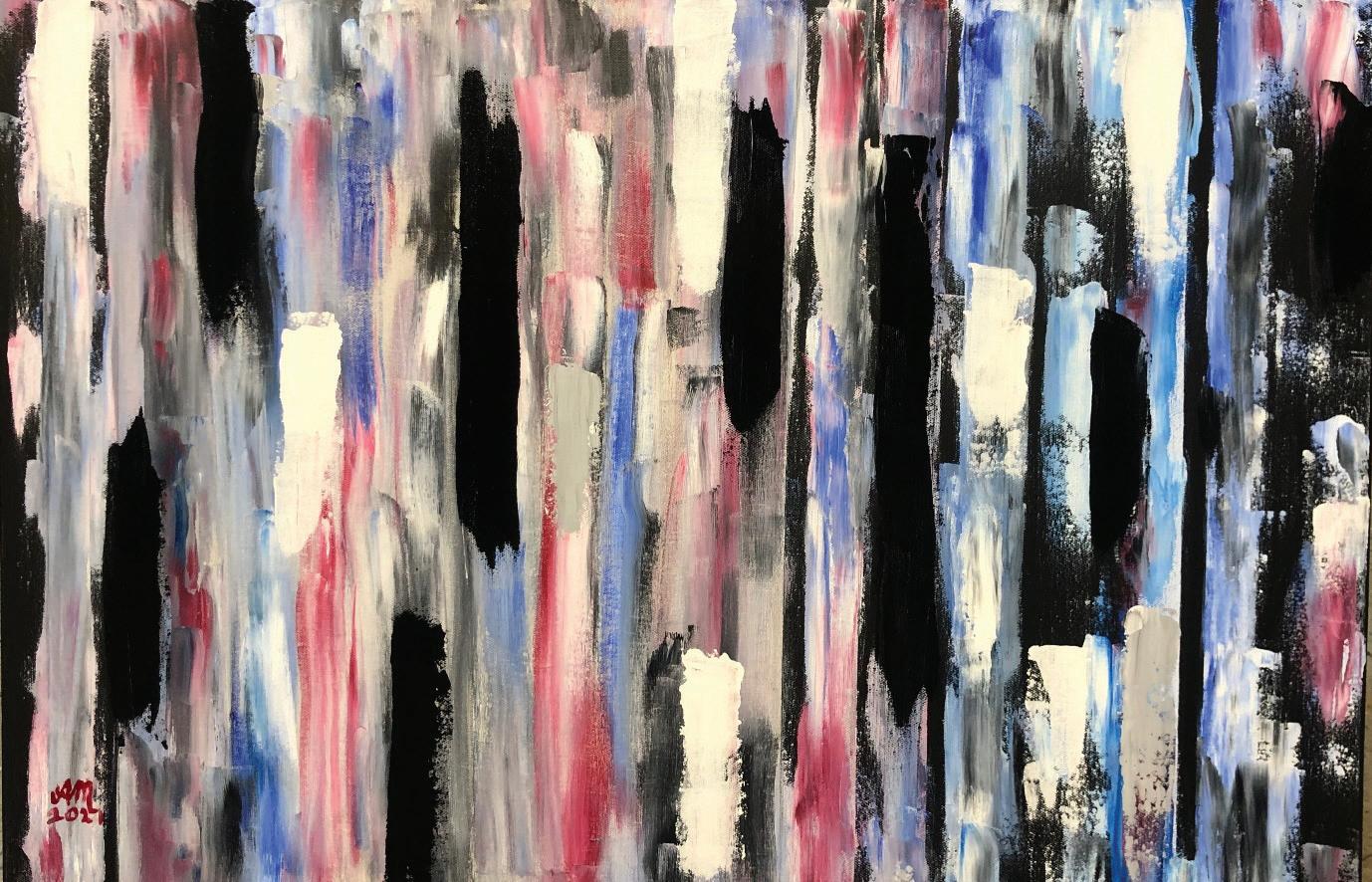



 CONTRIBUTED BY JUDITH BUNCE
CONTRIBUTED BY JUDITH BUNCE
This is a painting I did that depicts me wanting to create more roots to ground me yet telling my Ego to well and truly ‘F’ off and leave me in peace.




 CONTRIBUTED BY BELLE HOGG
CONTRIBUTED BY BELLE HOGG
I have a husband and 3 kids, and I care for my mum Chrissy who is 69 years old and has Alzheimer’s disease (dementia). It has progressed so much over the last year, and several months ago we moved Mum in with us from regional north coast. She loves it here!
I am sharing this photo because I captured this beautiful moment. Imagine I am working full time from home, in and out of meetings all day. I finished a call and walked out to see this happening. My 7 year old had set up Scrabble and asked Nanny to play. My Mum can’t put a word together and has no idea how to play this game. Ava was teaching her and showing what words she could make from the letters she had. Ava is just 7 so she really did not have knowledge of the rules either. But it didn’t matter because what I see here, in this moment is the care of a child as she is helping her nan, and I see a nan who knows she can’t do it but is playing anyway because her grandchild wants to. I really believe, as carers, our children learn from us about empathy, patience, diversity and understanding.

 BY KATE RECKORD
BY KATE RECKORD
I have been a carer all my life in a sense. We recognise young carers today, not only for the contribution they make to the care of loved ones, but also the disadvantages they experience because of the disability of their loved one and the way it impacts on their ability to grow and thrive, to keep safe and to connect socially through education, recreation, and paid work. They deserve our respect and support although they rarely identify as needing it. Their role is just their life, and they never knew any different.
My experience is quite different. When I was growing up, young carers were not recognised. Throughout my school years, and in the neighbourhood, no one ever mentioned my mum’s condition. Teachers, neighbours, my aunts, and uncles, all carried on around me as though nothing unusual was happening - but it was. You see, my mum had bi-polar disorder since well before I was born. It was the silent background to my upbringing. People find it hard to talk about and you can’t blame them. The stigma continues today, especially around mental health issues.
Her illness first emerged after the birth of my older sister Sally, then after the birth of each subsequent child. When I came
along, mum was taken to a mental hospital in another state for many weeks and I was in the hospital being taken care of by nurses. Dad would pop in after work each day but also had the other children at home to care for. No doubt, mum’s family would have helped care for the other children at home.
When my younger sister Eliza was six months old, she died of SIDS or cot death as it was then known. What a terrible time for the family that was, and mum’s mental health was shattered. But Mum is one of the most resilient people I have ever met. Although she was hospitalised many times over the years and has remained on heavy doses of strong medication, she has led an amazing life and has been an awesome mum. She was always so creative, she could sew anything, redecorate without help and she was a world class cook and thrifty home maker. She is also one of the most generous people I have ever met. These days, the behaviour that embarrassed me as a teen seems insignificant. The internal pain that led her to wish to take her own life at different times is still hard for me to understand. Despite this, our house was a happy one, an aura of benign neglect being the only vestige of her illness.

In her old age, I became her primary carer and since dad died ten years ago, have understood a lot more about how hard it was for him, and I have tried to do my best for her. Carers ACT have been there every step of the way. They provided support and help when I had to make decisions about getting care for mum in the home and I went there for counselling when things got too hard. They provided additional care when my mum needed help that I could not provide and respite so Icould get away. I have also attended two retreats, at the coast and at Jindabyne, workshops on services and courses on everything from self-care to managing grief.
The pandemic did not stop Carers ACT reaching out to people, and during lockdowns, I have joined informal trivia sessions and art discussions with curators from the gallery and have accessed counselling during this time. I am glad tohave been invited to contribute to this book, as the role ofcreative pursuits in helping me manage my caring role cannot be under-estimated. It transforms the stress and the pain into peace and joy, giving you the feeling of being able to make choices and be constructive and do something just for yourself. This then allows you to go on, and after that breakyou are back in the ring, doing whatever you can tosupport your loved one.
One of my best experiences with Carers ACT was at the carers’ expo at Belconnen Arts Centre where I was able tocontribute several art works. I had my own display table with paintings, photos, fabric art and poetry. No one bought anything but it didn’t matter, I had an identity outside my caring role. I felt like a real artist with a life to live and this made it not only possible but positive for me to continue my caring role.
During lockdown, I have continued to draw, paint, write poetry and prose. I have recently taken up singing and wrote a song for this publication to express the funny side of the pandemic. Yes, there is a funny side and if you look for it you will find it in your own life too, I am sure of it. Creativity, laughter and love make all the difference.
I am very grateful to my mum for the way she cared for me as a child and the privilege of caring for her. My husband, children and all of my family have been an amazing support. I am also grateful to Carers ACT staff for their help and most of all I am grateful to Jehovah our God for His superlative giftsof life and love.
Every good gift and every perfect present is from above, coming down from the Father of the celestial lights, who does not vary or change like the shifting shadows. (James 1:17)
Reckord November 2021 Kate BY KATE RECKORD
BY KATE RECKORD
(Sung to the tune of “We Didn’t Start the Fire - Billy Joel.”)

Gain of function protein spike, Millions dead overnight, Microbe ecology, Rampant virology, Epidemic pandemic, Prosthetic, polemic, Bread and circuses, As the masses watch Olympics.
We didn’t start the virus, It’s been multiplying, It’s just life defying, We didn’t start the virus, We were only trying, To improve the science.
Throw away coffee cups, Now replaced by paper masks, Fake news, they’re watching us, Cordoned off play parks, Empty gas petrol stations, Mass double vaccinations, No more interstate vacations, I never see my relations!
Backyard breweries, Rescue boutique cheeseries, Work from home foot fashions, One hours walk window shopping, Fourteen-day quarantine, No close contact in between, Herd immunity, I really need a cup of tea!
Zoom meeting caption jokes, Hail damaged mini mikes, No more super fire fears,
As we speak summer appears Lockdown household chores, Wiping handles on the doors, Wishing for clean exits coz, Of toilet paper shortage wars, We didn’t start the virus, It’s been multiplying, It’s just life defying, We didn’t start the virus, We were only trying To improve the science.
 By Kate Reckord
By Kate Reckord
Everyone loves the winter sun in Canberra but there’s no doubt about it, the last two winters have been hard for everyone. In this poem, I tried to reflect the tiny changes that added up to the complex pattern of change that was lockdown.
By Anzac DayAll the heaters are on, The car’s in the garage
And handwashing is done.
Trees shimmer softly Magpies welcome the day Darkness falls suddenly Neighbours merely wave.
Sun on your back is warming You open the Canberra Times You’re thankful for double glazing Knowing the need all your life. But this year something is different And we all know namelessly why There’s not much traffic on the parkway To muffle the raven’s cry.
There’s lots of jobs going in health And a few in tax and accounts

But nothing for artists or playwrights
The poster wall is now blank. Signs in cafes read “sorry” now Rather than “enquire within” Damaged parapets stand lonely Pock-marked by summer storms.
We’re sorry for everyone’s losses And truly feel their pain We’d like to talk about our feelings but were too embarrassed to complain.
The house I grew up in was filled with light Planned with love and intelligence and foresight Thick curtains sown by mum flanked its eyes Its windows faced each morning from every sleeping room.
Out the back the windows were long and wide And beckoned dew laden gums and oaks from outside Kookaburras were heard and magpies fed on the lawn And from my wet feet I spotted an owl one dawn.
Late summer evenings were bathed in warmth Dress ups and running and sliding down the honeysuckle Neighbours all called home to tea And no one left but my siblings and me.

On we would play into the night With dinner on our laps mum and dad came outside Sometimes dad turned the telly around And faced it through the window and turned up the sound.
We’d sit on our deck chairs with dinner and watch Bill Peach Eating our chops, too tired to chat Then it would be back to the yard for more time to play Expanding our minds as we recreated the day.
I loved that house like a river flowing fast Never thinking for a moment, it wouldn’t last That one day its pages and rooms would be sold After dad died when mum was old.
It captured our lives in so many ways Caressing the pain and expressing the joy It seemed a forever place but now it has gone I hope I can find a way to move on.




 CONTRIBUTED BY KATE RECKORD
CONTRIBUTED BY KATE RECKORD
These art works are my little bit of escapism. As a carer, especially during lockdown, you need to find a way to switch off from the demands of your role. Painting and drawing, from photos or memories, places of freedom and colour and fantasy gives the mind a place to dream. Recreation should be refreshing and doing art ticks all the boxes: creative, colourful, self-caring, drawing out meaningful memories and activating the part of the mind that says I matter too, and my personhood will endure. Being an artist is almost like an alternative identity, when you get into the flow of it you forget your worries.








Just before lockdown, in fact during the fire crisis in 2019 – 2020 a friend of mine took a job at the south coast and moved there. We met up before the lockdown and I drew this picture with a pencil while I was waiting to meet her in the café.




Watching people milling around, working at laptops, chatting to strangers, and reading menus has always been interesting but when you draw them it becomes etched in your memory. You must be a bit secretive because if people know you are drawing them, they change their behaviour. During lockdown, I found this pencil drawing and began working on it with felt tip and wash and as I did, I really began to see the value of this kind of informal interaction with loose ties (as opposed to close ties) like baristas and fellow diners that we are all missing out on during lockdown. I guess you could call it café society but to me it’s just people in public, being themselves, being friendly, being alive and enjoying the day.

This is kind of a fun one because I photographed it in the notebook just to help people see that you can draw anywhere anytime.










